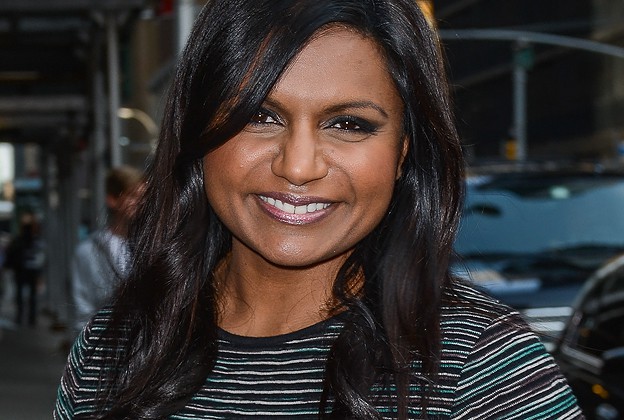Act Like A Lady: The New Funny Girl

There is certainly no shortage of young, funny women on TV this season. You can stop on any channel and see these ladies running a bustling medical practice, navigating three male roommates, attempting sobriety, or waitressing in a diner in Williamsburg. Funny women are having a moment, and it is hard to pin down whether this kind of character has come along as a result of a cultural shift, or if we are just now noticing how funny girls can be. Maybe those two things are the same. We can probably look to the success of Bridesmaids as the catalyst for this recent revelation. Nonetheless, all the ladies to which I refer can be found in some of the network’s funniest and smartest shows. The Fox Network is leading the charge with The Mindy Project and New Girl, and CBS isn’t far behind with the sophomore hit 2 Broke Girls and the new series Mom . While all these characters are different in their own right, it is their particular brand of female-centered comedy that strikes a chord with me. These shows all feature a new brand of female character that embodies the changing face of feminism and exhibits a varying and developing new archetype among television characters: a female lead that is deeply flawed, yet deserving of our sincere adoration.
Mindy Kaling has finally found a character in Mindy Lahiri, in which, much like Lena Dunham’s Hannah, exists a paradoxical commingling of mild narcissism and ambiguous self-doubt. This duality is what makes the earnestness of her character resonate with so many women; instead of laughing at her, we are laughing with her because we ARE her. Her ability to make fun of herself ingratiates her to us because she allows for us to be flawed. In last week’s episode, her apparent insecurity prompts her to challenge Dr. Leotard to a “shots off” which she wins because, according to her, she eats a whole loaf of bread every day. In a different character, perhaps one on TV ten years ago, this would be perceived as sad, and would most likely evidence a broken and sad version of the female paradigm. But on Kaling, its fearless acting. Few other female characters can claim such a nuanced psyche, flesh out the inclinations of even the most subtle of female dynamics AND become a master at self-deprecating humor. This is the new kind of woman on television. One that can be sad, or pathetic, or weird, or a mess, and we can still love her. We still root for her, and we still think she is marvelous.
The unconventional coalesces with the captivating in Fox’s Jess on New Girl. When this show first aired, the phrase “a-dork-able” was thrown around quite a bit, suggesting an allure in the nerdiness. We owe a collective thank you to Zooey Deschanel for opening the door for girl-nerds, and for ushering in a whole new brand of “girl power” feminism. Jess, as the main female lead, is both a highly feminist character AND a rebel to feminist establishment because she is not afraid to face down the labels and gender conventions that plague female characters. Jess upends long-established standards about femininity and beauty and makes it ok to be quirky AND sexy, to be insecure AND desirable. She pokes fun at traditional female empowerment by giving into those stereotypes without endorsing them as the only things worth noticing. She is the new sexy.
While the character of Jess is loosely a symbol for the evolving ideals of what sexy is, what funny is and what it means to be both, CBS is pushing the limits of what we can accept as flawed-yet-still-worthy in the new series Mom and the returning hit 2 Broke Girls. These shows go well beyond the conventional television tropes governing lady-like humor and provoke a new conversation about how a woman can be funny. Anna Faris on Mom, delivers some squirm-worthy punchlines as she cannibalizes everything from rehab to her promiscuous teenaged daughter. I don’t think we would ever see Lucy referring to her daughter as “an easy lay,” or accusing her own mother of “cooking meth while other mothers were cooking dinner.” Nor could we expect Rhoda to say the word vagina twelve times in an half-hour like Max and Caroline, but that’s the point, right? These women and their characters are challenging the boundaries of comedy, asking us to stop thinking about them as funny women, and think about them as just funny. As Tina Fey, Amy Poehler and Kristen Wiig blazed the trail for these ladies, so too will they participate in the evolution of funny women.